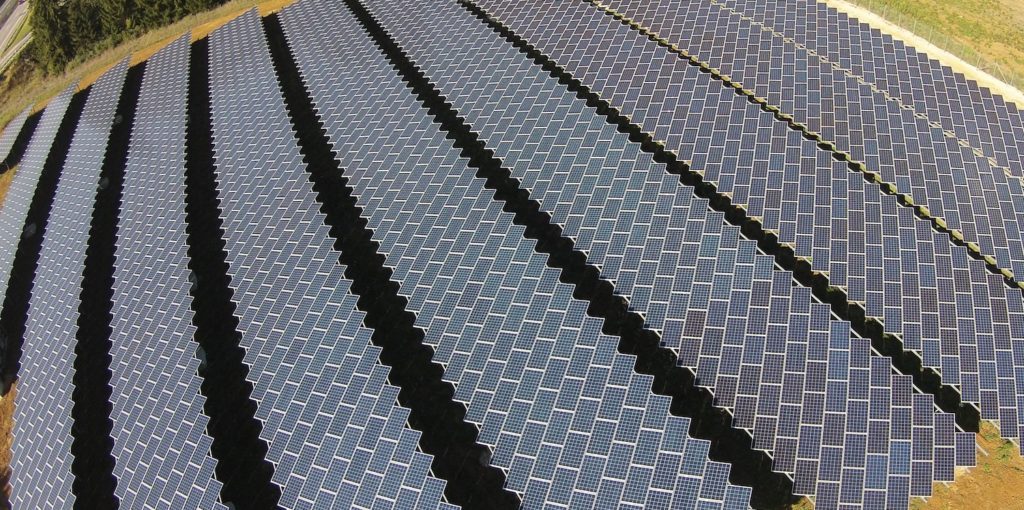From pv magazine España
The attendance of over 600 Spanish and international attendees and 50 high-level speakers at 13 discussion panels was a clear reflection of the success of the V Solar Forum, “PV leading the energy transition”, held by Spanish PV association UNEF in Madrid this November 6 and 7.
In his opening speech, Secretary of State for Energy José Domínguez Abascal set a new renewables target of 35% penetration by 2030. Solar energy is expected to cover more than half of this, which would translate to between 50 and 60 GW of new capacity.
This is a challenge requiring the action of the companies that comprise the sector, and technological development, he said. He added that the investment needed to realize this goal amounts to €70 billion. “Spain is going through a unique historical moment, which it should take advantage of,” he said.
Miguel Arias Cañete, Commissioner for Climate Action and Energy at the European Commission went on to define the necessary conditions to meet this objective. They include the need to have a more competitive, integrated market and stable regulatory framework. He further stated the need to solve the interconnection of electricity networks between countries in Europe and define a European storage strategy.
These plans would also require a reform of the electricity market, more legal security and the reduction of procedures for access and connection to these networks, which are, in the words of Jorge Barredo, president of UNEF, the pressing tasks for achieving the targets. “The solar sector generates more than 19,000 jobs in Spain and invests 1.6% of its turnover in R&D,” he said.
More quality than quantity
In a conversation with pv magazine, JorgeBarredo said he was very satisfied with the result of the forum. He said the most positive aspect was not only the record number of attendees, but also “the desire by participants to get to know each other and network.”
UNEF director, José Donoso, further hailed its success, which had to close registration earlier than expected, due to the very high levels of interest and limited capacity of the location. He also agreed with Barroso that more than the number of attendees, it was the quality of the participants and the desire to act that defined the event. “It has been shown that the sector is prepared to develop the photovoltaic projects necessary to achieve the renewable objectives foreseen by government,” he said.
The leading Europe an market
The 13 discussion panels addressed all issues and segments: self-consumption, large-scale plants, private PPAs, network capacity, criteria for access to the network, financing, digitalization, politics, the electricity market, technological novelties, storage and plant management.
With absolute conviction, Raffaele Fait, representing Solar Power Europe said that “with 4, 5 or 6 GW, Spain will be the leading European market in 2019”.
Antonio Delgado, from Aleasoft Energy Forecasting, meanwhile, stated, “we are living a revolution and Spain is a gold mine”. Aleasoft uses artificial intelligence and classic statistical tools for its calculations, and Delgado announced that Spanish PPA prices are forecast to average €50/MWh for the next 10 years. “The PPA is the basic tool to enter that revolution,” he said.
“How long will it last?”
Despite the obvious enthusiasm, there is still some hesitancy in the industry. The fear “derived from the trauma of a few years ago” is still present, as an attendee told pv magazine in a coffee break. This was also reflected in a well-publicized question from the audience to the political panel.
Regrettably, none of the political representatives – from parties Ciudadanos, Podemos, PSOE and PP – announced the regulatory proposals tthier party was intending to make.
In the ensuing question round, an attendee voiced the industry's concerns: “How long will it last? Will self-consumption be abolished again? Will legal obstacles be created that prevent us from working?”
During the panel, “How can expansion be accelerated on the self-consumption market,” moderated by pv magazine, there were many proposals aimed at creating trust between industry and consumers. Rafael Clusellas, from Innover, Ismael Clemente of Merlin Properties, Sergio Lopez de Castro from Fronius Spain and Miguel Torres of Bodegas Torres, for instance, spoke with great humor on environmental responsibility.
They further outlined possibilities for eliminating not only political, but also consumer, obstacles to self-consumption. Indeed, for many years it was believed that premiums and incentives for renewables were the reason why electricity was so expensive in Spain, which is why for many people “renewable” is synonymous with “bad”.
An example of a solution, said the panelists, would be to take advantage of the self-consumption facilities of companies that do not work on weekends; or introduce self-consumption in the energy certifications of buildings.
A comment from the public again put words to the general thought: “Hopefully no government will return to regulate the pressure of the Spanish Electricity Association (UNESA) lobby.” Hopefully indeed.
This content is protected by copyright and may not be reused. If you want to cooperate with us and would like to reuse some of our content, please contact: editors@pv-magazine.com.




One crucial step is the finalizing of secondary regulations on fed-in electricity from domestic installations. The Royal Decree says this will be paid the wholesale rate, but obviously this needs to be simplified into a fixed price updated at reasonable intervals, say quarterly. The government also needs to streamline the approval process for a grid hookup, getting close to the week or so of Germany.